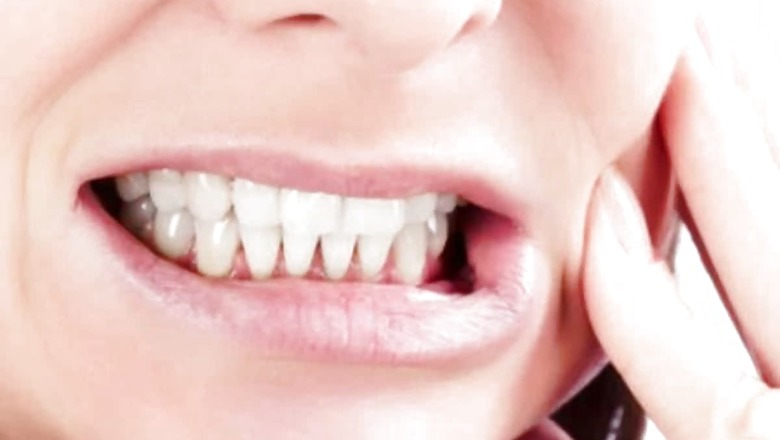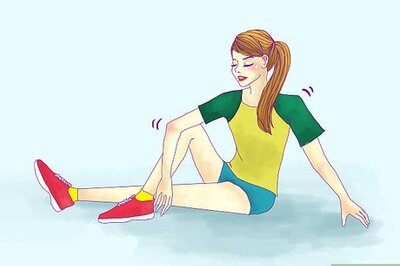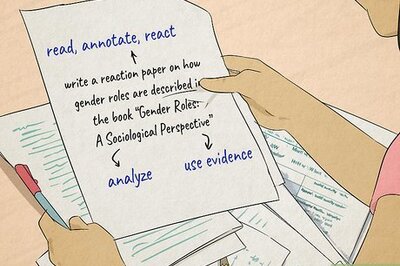
views
Clenching your jaw and grinding your teeth may be a normal reaction when you’re very angry but doing either without realising it or on a regular basis is a sign of a condition called bruxism. According to the Cleveland Clinic, occasional teeth grinding or clenching does not do much harm in the long run. However, suffering from bruxism can lead to fracturing, loosening and even the loss of teeth.
Why teeth grinding is on the rise
The temporomandibular joints and the jaw muscles can degrade due to bruxism, which can not only make chewing difficult but may also lead to facial deformities. Studies show that teeth grinding in both adults and children usually starts due to changes in the central nervous system caused by stress, anxiety, alcohol consumption, smoking, trauma, heredity, medications or certain diseases.
A new study published in the Journal of Clinical Nutrition shows that there has been a significant rise in orofacial and jaw pain during the COVID-19 pandemic. The researchers suggest this may be because of increased jaw clenching during the day and teeth grinding during the night, thanks to the stress and anxiety caused by panic. Because bruxism can cause jaw deformities and accelerate degradation, the study suggests that preventing it is extremely important especially during the pandemic.
Symptoms of bruxism
The strange thing about teeth grinding is that while you may be aware of doing it when you’re angry, you may not be aware of doing so while sleeping or even unconsciously. Therefore, the symptoms of bruxism can often present in other forms. Taking these seriously and visiting your dentist is very important. The following are the symptoms of bruxism:
- Facial pain
- Headaches
- Earaches
- Pain and stiffness in the jaw
- Disrupted sleep
- Worn-down teeth, increased sensitivity or teeth loss
- Broken teeth or damaged fillings
How to prevent teeth grinding
There are currently no drugs that can stop teeth grinding but there are a number of treatments that can help prevent it. The following are some of them:
- A dentist can fit you with a mouth guard or splint to protect your teeth, jaw muscles and bones from grinding episodes, especially while you’re sleeping.
- Being conscious of your daytime teeth grinding or clenching habits and actively trying to avoid them can also help prevent bruxism. The Cleveland Clinic suggests consciously resting your tongue behind your front upper teeth.
- If stress is the contributing factor to your bruxism, then counselling for stress, starting on an exercise programme or asking your doctor if muscle relaxants can be taken might be ideal methods of controlling bruxism.
- Avoiding foods that exacerbate your stress or anxiety levels can also prevent bruxism. So, avoid caffeine in coffee, tea, colas and even chocolates.
- Avoid alcohol consumption and smoking as they can affect the nervous system, cause anxiety and bruxism.
For more information, read our article on Bruxism.
Health articles on News18 are written by myUpchar.com, India’s first and biggest resource for verified medical information. At myUpchar, researchers and journalists work with doctors to bring you information on all things health.
Read all the Latest News, Breaking News and Coronavirus News here



















Comments
0 comment